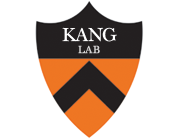Antoni Celia-Terrassa, a postdoctoral fellow in the Kang laboratory, was awarded the NJCCR post-doctoral fellowships. Dr. Celia-Terrassa plans to evaluate the role of secreted exosomal miRNAs in breast cancer progression and metastasis. Recent studies have implicated secreted exosomes (microvesicles) as a new system of intercellular communication involved in physiological and pathological processes, including cancer. This exosomes have been shown to carry and transfer functional miRNAs in addition to proteins, providing a novel angle for study cancer metastasis.
Chase Hulderman, graduate students in the Kang lab, was awarded the NJCCR pre-doctoral fellowship. The proposal from Chase Hulderman, an MD/PhD student, 'Ubiquitin-dependent regulation of EMT and metastasis' hypothesizes that E3 ubiquitin ligases may play crucial roles in regulating breast cancer metastasis by targeting master transcriptional regulators of metastasis for ubiquitination and degradation. In his proposed study, Chase will use a series of biochemical analyses, in vitro and in vivo metastasis assays, and clinical correlation studies to investigate the role of candidate ligases in breast cancer progression and metastasis. This study will lay the foundation for systemically identify E3 ligases and deubiquitinases involved in the post-translational regulation of EMT transcriptional factors and other metastasis-related proteins.

